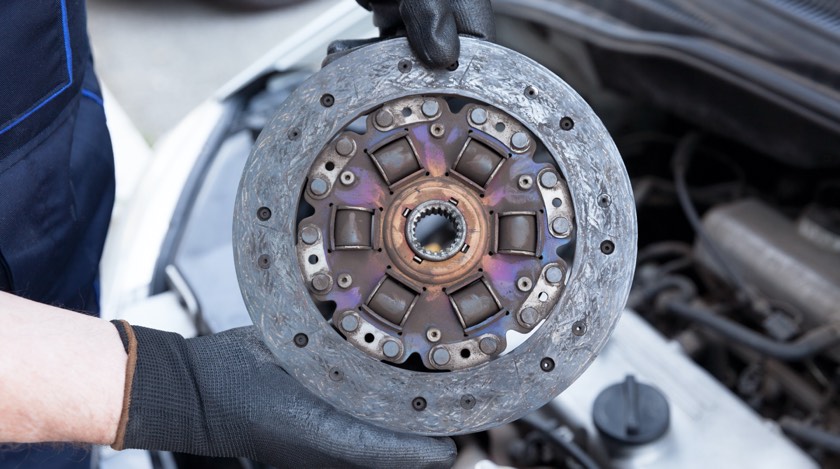How To Fix A Slipping Clutch
- A slipping clutch involves constant engagement and disengagement, preventing power from reaching the wheels and stopping the car from moving.
- Signs of a slipping clutch include unusual noises, a burning smell, difficulty changing gears, a spongy clutch pedal, and poor acceleration.
- Causes can include aggressive driving, old or poorly maintained vehicles and inadequate servicing.
- If your clutch is slipping, book a repair with a trusted garage as soon as possible.

Whether you’re experiencing a sticky clutch pedal or strange rumbling noises from your footwell, there’s a good chance you’re noticing that your clutch is on the way out. This article takes you through everything there is to know about a slipping clutch, so you’re armed with the knowledge to deal with it safely and efficiently.
What is a slipping clutch?
When you feel your clutch ‘slipping’, what’s really happening is it’s engaging and disengaging constantly, meaning that no power is being delivered to the wheels and, of course, the car won’t move forward. This is a common problem with manual vehicles and, as such, should be checked every 60,000 miles or so.
How to tell if your clutch is slipping
If you’re concerned that your clutch might be slipping but you’re not entirely sure what the telltale signs are, here are some of the key things to look out for:
- Squeaky or unusual rumbling/gurgling noises when pressure is applied to the pedals
- A burning smell when revving the engine
- Difficulty changing gears
- The clutch pedal sticking, vibrating or feeling spongy. If you’re unsure what we mean by a spongy clutch pedal, the chances are you haven’t experienced it!
- Poor acceleration, despite the fact you’re still able to rev your engine
- Momentary loss of acceleration caused by the feeling of a clutch that’s slipping
What are the causes of a slipping clutch?
Clutches are often troublesome so, as you can imagine, there are a range of different factors which could be causing a slipping clutch. Here are some of the most common:
- Driving quality: While clutches are supposed to last anywhere between 60,000 and 100,000 miles, if your driving is keener (i.e, fast acceleration, aggressive gear changing), you may find that your clutch gives out before then.
- Vehicle quality: Even with the best driving in the world, you can’t overcome a vehicle that’s old or, worse, poorly maintained. Regular servicing is vital to ensure a vehicle is kept in good health, so make sure that you have a maintenance schedule in place each year or 10-12,000 miles.
What should I do if my clutch is slipping?
The most important thing to do is to stop driving. If you’ve noticed your clutch slipping just as you’ve got in your car in the morning, the best thing to do is to contact a trusted garage and book a repair as soon as possible. A vehicle will go through a number of clutches during its lifespan, so this isn’t something you should worry too much about. Just make sure you choose a reputable garage to carry out the work for you!
We’ve dealt with our fair share of slipping clutches over the years. While it’s a problem that tends to creep up gradually, if you are noticing the signs, it’s recommended to get it sorted before it leads to any other complications and higher costs.
Pete Bamford, Retail Director

Having problems with your clutch? Seeking help and advice from a professional – such as Mr Tyre – will ensure the problem is properly identified and fixed so that you stay safe out on the road. Whether you have noticed that your vehicle has started making an unusual noise or a problem is detected during servicing, we can repair and replace a wide range of components, including clutches, helping you get back on the road ASAP. Call your local branch today for more information.


